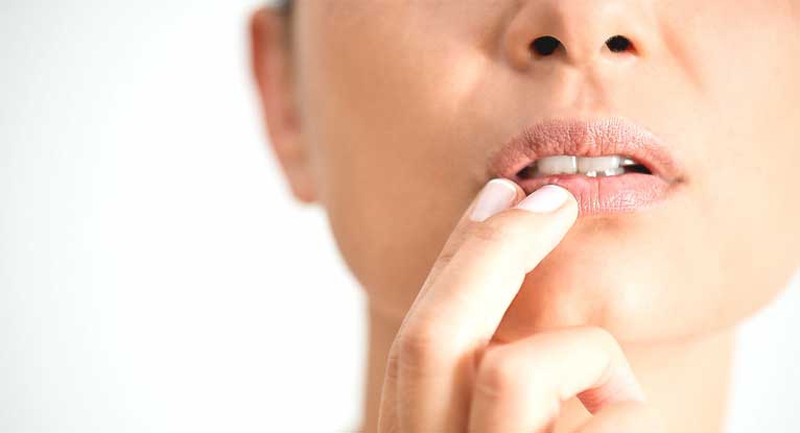Herpes is very common. It is found in at least one out of six adults, according to the research from the U.S. Centers for Disease Control and Prevention (CDC). Although this can be found among a lot of people, there is still an abundance of myths and false information everywhere, some of which we will discuss below.

Can You Get Herpes from Kissing?
What most people do not realize, when the public talks about herpes, it most likely refers to two types of herpes simplex.
Herpes simplex type 1 – This can cause oral symptoms, presenting often as blisters on and around the lips. These may sometimes spread to other areas. Breakouts of these blisters are often termed as “cold sores” or “fever blisters.”
Around 57.7% of people in the U.S. are infected with this type of herpes, which makes oral herpes fairly common. Some of those infected would only carry the virus and may have rare outbreaks of the sores on the areas surrounding the mouth or never at all. So you may be a carrier of this virus even though you don't realize it.
Herpes simplex 1 may be transmitted via contact with contaminated saliva or direct contact with the sores of an infected individual. So for the question, the answer is yes. Note as well, that the possibility of the spread of the virus from the mouth and the area around it to the genitals can happen with oral sex.
Herpes simplex type 2 - Infection happens mainly within the groin area and can cause blisters on and around the genitals. These may spread to other parts of the body but occur rarely. This is the second most common herpes infection, and as many as 16.2% of those living in the US are carriers of this virus.
Sexual contact with an infected person can cause the spread of the virus between two people. And sexual contact can be in the form of vaginal, oral, or anal. The virus may spread even if the infected person has no active sores at the time of sexual contact. This type of herpes can also infect the mouth when direct contact occurs with oral sex, so if you ask the question, "can you get herpes from kissing", again, the answer is also yes.
Infection with either type of herpes simplex means you’d have the virus on you for life. The severity of symptoms become less severe through time, and though they remain contagious, carriers often do not have a recurrence of breakouts.
More Questions About Spreading of Herpes
Can you get herpes from objects, such as cups or towels, or any object that have touched infected areas?
You can’t get herpes other than being in contact with sores, or infected areas. The virus does not last outside the human body, and can no longer infect after it has left the skin.
Can your children catch genital herpes from you?
Genital herpes can only be acquired from an infected person with direct skin contact on the affected area when symptoms are present, thus parents need not worry about passing on the disease to their children. This cannot be passed on with contact with hands or objects.
Daily family activities such as hugging, sharing, and touching, will not pass on genital herpes from parents to children. Do not let the fear of transmission get in the way of expressing affection with physical contact. Can you get herpes from kissing? Only when the infection has spread to the oral area is there any real threat of infection with a fairly common expression of affection. To make you know better about what you can do, keep reading the contents below:
Bed sheets do not transmit herpes simplex virus.
Clothes may be washed together with those carrying the virus, even when the person has symptoms.
Bathing, showering, using the Jacuzzi together, or swimming together, will not transmit herpes simplex virus. Contact with the upper thighs and abdomen will not transmit the virus. A child brushing against these areas will not catch the virus, even while you have a recurrence.
The virus will not last long when it leaves the infected area or moves out of living cells. They will not cause an infection when you use the toilet and touched the genital area and have forgotten to wash your hands.
It is enough to wash your hands with soap and water to prevent transmission – no need for any special hand or toilet seat sanitizer.
Don’t worry if your children happen to find your used clothes and play with it, even putting it on their head.
What Are the First Signs of Herpes?
Can you get herpes from kissing? And if you really get it, how can you know it? Itching, tingling, burning or painful sensations are the first things felt in the skin once infection has set it. Called prodrome, these are felt just hours before the appearance of the characteristic blisters but have also been known to set in a few days before the skin lesions show up. Infected individuals may also experience any of the following:
Burning sensation when urinating
Enlarged, tender lymph nodes near the affected areas, which can last up to six weeks.
Headaches
Muscle pain
Feeling ill
Flu-like symptoms
Nausea
Fever
Difficulty in urinating
View All Comments /Add Comment